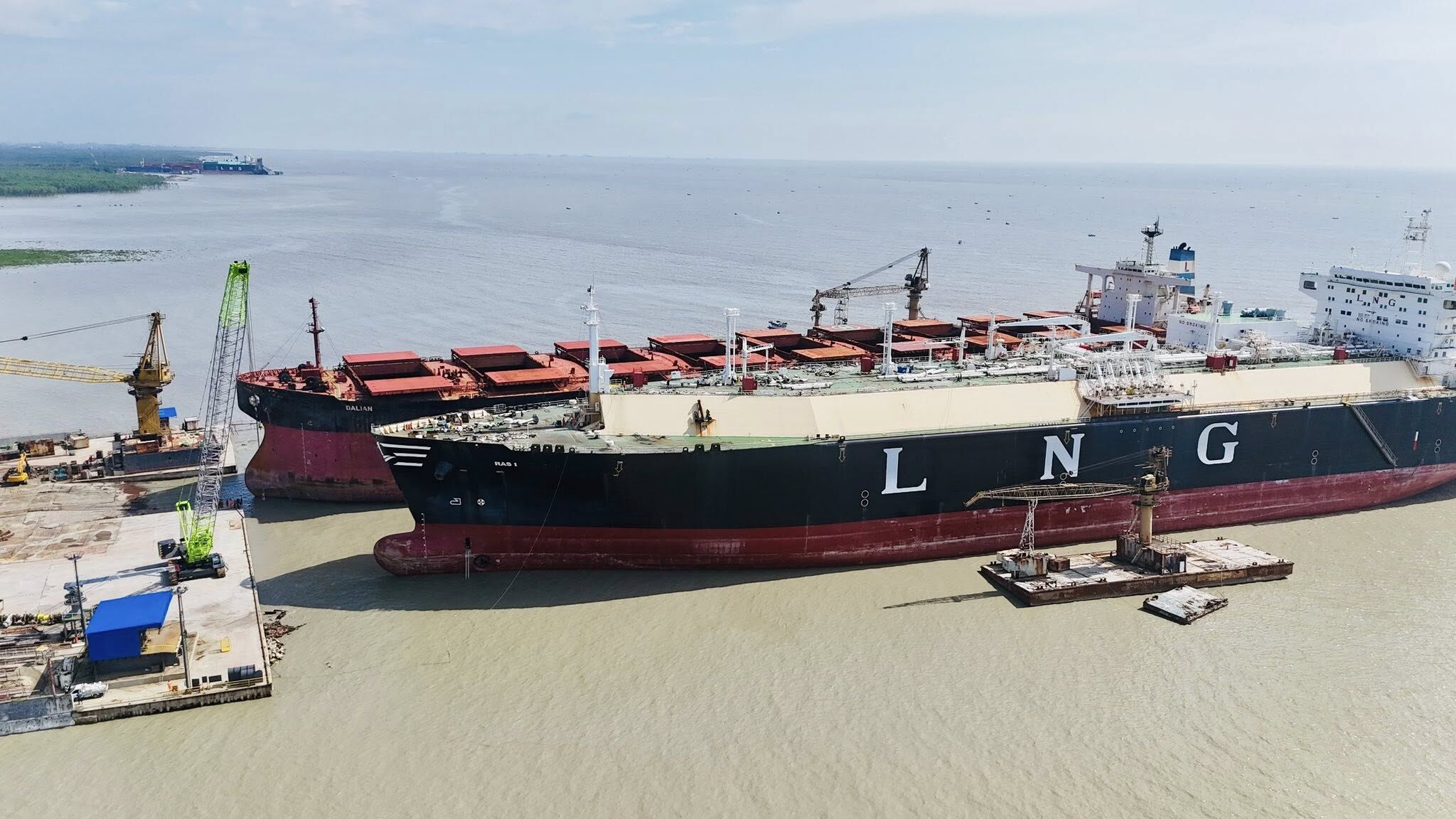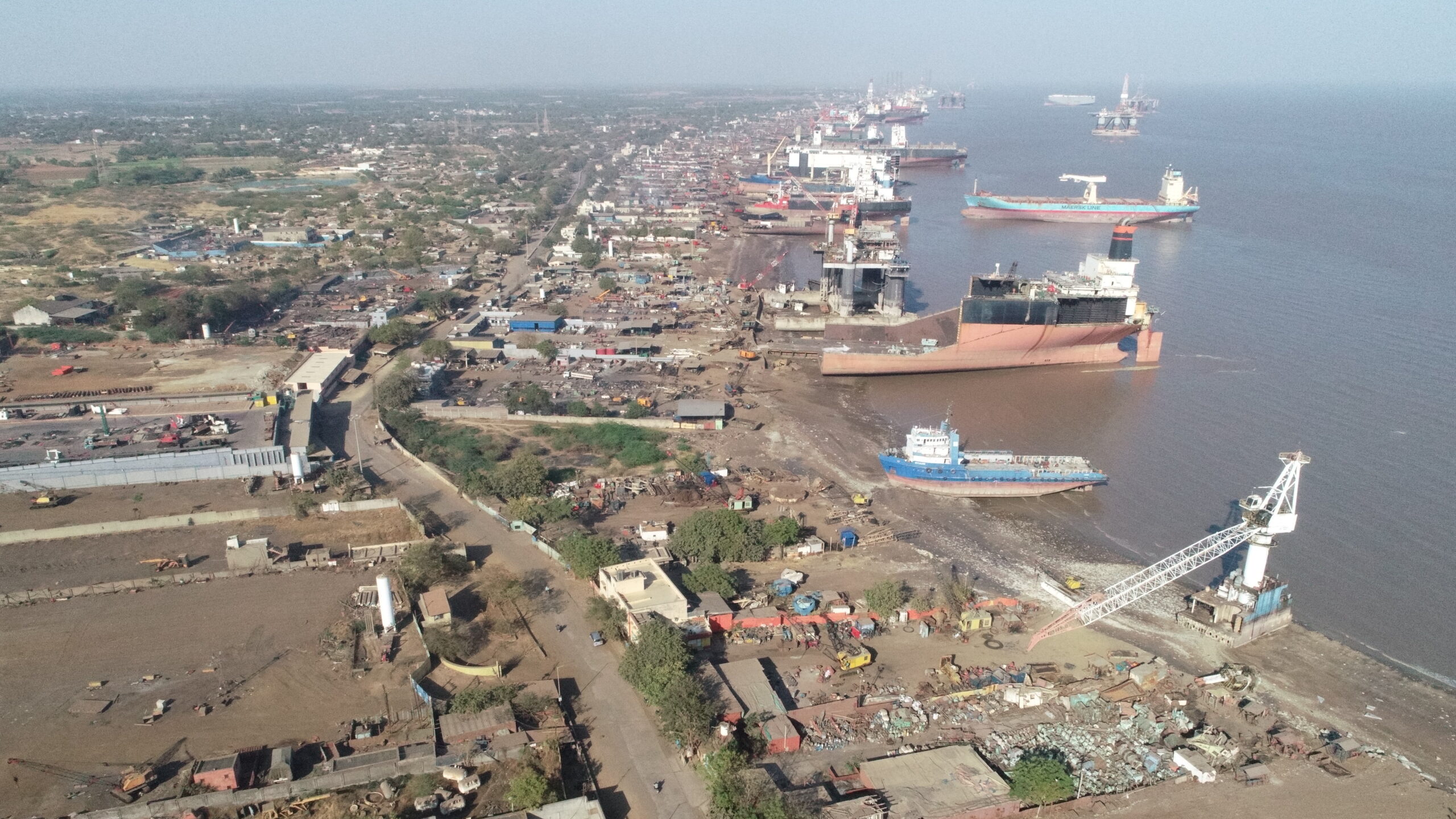Ship Recycling Markets remained notably subdued: STAR ASIA
The world’s leading cash buyer for Ships sending for recycling STAR ASIA in their weekly market report opined that this past week, ship recycling markets remained notably subdued, with India entering festive holidays until November 5th. Bangladesh and Pakistan also stayed on the sidelines, contributing to a noticeable lull in ship supply, which had previously been anticipated to rise. However, despite a significant correction in dry bulk freight rates, the expected increase in vessel availability did not materialise, as most ship owners opted to continue trading, even in a softening market.

The upcoming U.S. elections are set to add a layer of intrigue to the industry, likely offering insights into the future of shipping markets. In the meantime, this week has been inactivity for the ship recycling sector, with market participants awaiting clearer direction.
Alang, India
The ship recycling markets remained closed this week in observance of the Diwali festival and are set to resume activity next week. Industry experts anticipate that demand will emerge in the post-Diwali period, which is traditionally a favourable time for the sector. However, the ship recycling market continues to tackle a significant lull, primarily due to a shortage of available vessels, making it challenging to establish accurate market levels and future trends.
Chattogram, Bangladesh
This is another inactive week as Bangladesh’s ship recycling industry faces major challenges. Operations have been mainly at a near standstill since the formation of the new interim government. The country’s worsening economic situation, combined with an influx of low-cost imported scrap, has intensified pressures on local recyclers.
Bangladesh’s shipbreaking industry, once a global leader in dismantling vessels, is now battling severe economic, regulatory, and geopolitical challenges that threaten its survival in the long run. A report by the NGO Ship Breaking Platform highlights the growing crisis, driven by a strong U.S. dollar, reduced availability of end-of-life ships, and restrictive regulations. As the Bangladeshi Taka weakens, costs soar for shipbreakers who must pay in dollars, squeezing profit margins.
The shortage of ships, combined with safety concerns—five accidents and six deaths this year—has forced over 50 Bangladeshi yards to close recently, impacting jobs and steel supplies. Industry advocates call for government intervention to stabilise the sector, fearing further contraction in a vital industry that supports Bangladesh’s construction and manufacturing sectors. The ship recycling market has come to a near standstill,
Gadani, Pakistan
The ship recycling markets remained subdued this week, with a noticeable shortage of vessels as many recyclers awaited an easing in supply. Meanwhile, most recycling yards are pressing forward with preparations to secure Hong Kong Convention (HKC) certification, with work progressing at full steam ahead.
Aliaga, Turkey
Turkish scrap markets have shown mixed signals this week, with domestic prices largely maintaining stability while import values continue their downward trajectory. The market’s subdued activity can be partially attributed to the Republic Day holiday.
Market participants hold divergent views on the near-term outlook. While Turkish mills maintain a patient stance, citing adequate scrap availability, particularly from European suppliers, some vendors anticipate a potential price recovery driven by seasonal factors including holiday schedules and winter conditions. Adding complexity to the market dynamics are rising freight rates, euro-dollar exchange fluctuations, and anticipation surrounding China’s upcoming National People’s Congress Standing Committee session scheduled for November 4-8. This event has generated cautious optimism regarding potential economic stimulus measures that could influence global market sentiment.
Meanwhile, Turkish mills continue to face challenges in export markets, though domestic demand shows regional variations, with southern areas displaying more robust activity. Rebar prices are currently positioned at US$620-640/ton ex-works, while shipbreaking scrap commands US$365-385/ton delivered, with the Turkish lira trading at TRY 34.34 to the dollar.
Sub-Continent and Turkey ferrous scrap markets insight
In the Sub-Continent and Turkey scrap markets, prices fell across India, Bangladesh, and Pakistan, reflecting a quieter demand as market activity slowed. In India, shredded scrap prices slipped to US$385-US$386/ton as pre-Diwali inquiries dwindled, leaving suppliers facing limited buying interest. Bangladesh’s scrap market also remained sluggish due to low demand and restrained purchasing, while Pakistan saw a slight drop in shredded scrap offers despite an uptick in rebar prices. In Turkey, buyers took a bearish stance on US and Baltic offers, with bids dipping below US$360/t for US scrap.
Shredded scrap in India was priced at US$385-386/ton, with busheling offers around US$400/ton, contingent on supplier terms. With Diwali keeping the market closed for the week, traders are keen to leverage lower prices, anticipating fresh shipments by late November. Expectations are mixed, with HMS (80:20) bids and offers ranging between US$362-370/ton at ports like Mundra and Chennai. Buyers show interest at approximately US$360/ton for HMS (80:20) and US$372-375/ton for HMS 1. Post-Diwali, activity is expected to rise as suppliers look to clear stocks ahead of winter. European scrap supplies, anticipated by mid-November to early December, may face potential disruptions from winter weather, which could push supply from alternative regions like the US, Brazil, and Australia.
European shredded scrap offers in Pakistan held steady at US$392-394/ton, though workable levels hovered slightly below US$390/ton. A Karachi-based mill noted weak rebar sales despite recent price increases, as the construction sector in key regions
remains tepid. Notable companies kept rebar prices around PKR 245,000-250,000/ton, and local steel bars, previously exempt from sales tax, saw price hikes due to intensified tax enforcement. This recovery of previously underpaid taxes is now passed on to customers as a discount.
Bangladesh’s imported scrap market continued to show a muted response despite price reductions by suppliers. Sellers from Singapore and Malaysia offered PNS scrap at US$420/ton for 2,000-3,000 tons loads, while Australian shredded was available at US$410/ton. Malaysia-origin HMS-1 and PNS bundles were offered at US$400-405/ton CFR Chattogram. Hong Kong-origin AB bundles were priced at US$395/ton, and Australian HMS (80:20) at US$390/ton with a dust content of 2% in 1,500 t loads. Australian HMS (90:10) was available at US$400/ton for slightly larger loads between 23-24 tons.
In Turkey, imported ferrous scrap prices stayed within range following deals with US and Baltic suppliers, while LME futures rose to US$380/ton, outpacing recent spot transactions. Although Turkish mills reportedly need 32-35 vessels, demand remains lukewarm. As winter approaches, both seasonal factors and supply constraints are likely to push prices higher. According to one steel mill source, a national holiday in Turkey may result in a temporary price dip, with US-origin materials potentially reaching workable prices around US$360/ton CFR and EU-origin materials closer to US$355/ton. Another market insider highlighted oversupply from Europe as recyclers increase their cargo offerings, leading to suppressed market conditions.
Author: shipping inbox
shipping and maritime related web portal








